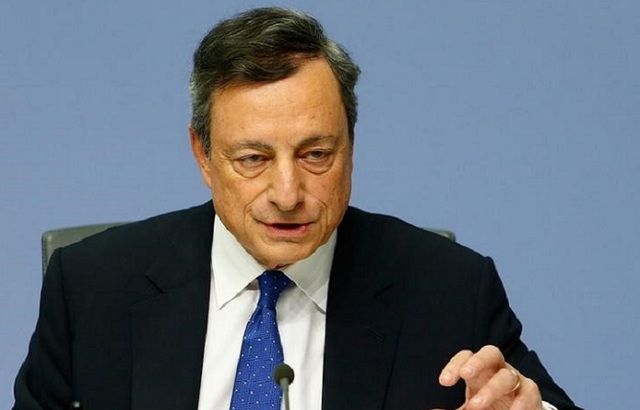That suggested the plan to reduce monthly bond purchases from €60bn until September 2018 (“or beyond, if necessary”) to €30bn had already been priced in. ECB officials had leaked details of the plan to Bloomberg and the Financial Times prior to Thursday’s board meeting.
“Over the past few months the ECB have successfully communicated their intention to scale down the asset purchases programme from next year, in an effort to avoid a taper tantrum,” said Anna Stupnytska, Global Economist at Fidelity International.
Though the announcement is a sign the ECB is intent on winding down its asset purchasing programme over time, it is still firmly in easing mode. This was confirmed by the bank’s intent to “reinvest the principal payments from maturing securities purchased under the asset purchasing programme (APP) for an extended period of time after the end of its net asset purchases, and in any case for as long as necessary,” the ECB’s monetary policy statement said.
“This will contribute both to favourable liquidity conditions and to an appropriate monetary policy stance,” it added.
“Even with tapering, the overall monetary policy setting will remain highly accommodative over the next couple of years. After all, tapering still implies that the ECB balance sheet will continue to grow over 2018, only at a slower pace,” noted Silvia Dall’Angelo, an economist at Hermes Investment Management.
Dove and hawk in one
To strike the right balance between tapering and extending the ECB’s monetary stimulus was always going to be a delicate task. But Draghi did an excellent job, believes Wolfgang Bauer, a fixed income fund manager at M&G.
“All eyes were on the future path of asset purchases and Draghi managed to strike a dovish tone while simultaneously taking the foot off the pedal,” he said. Draghi himself couldn’t resist the temptation to extend some praise to himself as well, calling it “remarkable” that the market reaction to his “significant announcement” had been so muted.
What next?
The ECB justified its extension of QE by pointing to lacklustre inflation in the eurozone. “Given the remaining slack in the labour market, inflation is far below the target and is likely to rise only at a very sluggish pace,” said Stupnytska.
“Overall, there are plenty of reasons for the ECB to carry on with easy policy for longer. I continue to expect a very gradual withdrawal of policy accommodation with asset purchases likely to continue beyond the horizon of the new programme announced today, i.e. beyond September 2018.”
Laurel Clavel, head of macroeconomic research at Axa IM, also expects the ECB to continue its purchasing programme beyond September 2018. “In the Q&A [the press conference after the monetary policy announcement], Draghi seems to consider that going from €30bn down to €0 would be too much of a sudden stop, while insisting on balance sheet (in euros) and key interest rates remaining stable for an extended period of time and as long as necessary,” he said.







